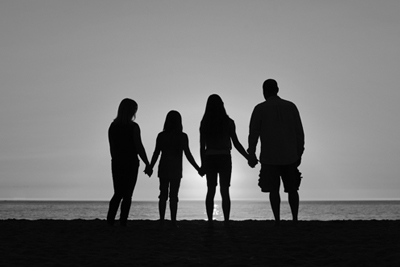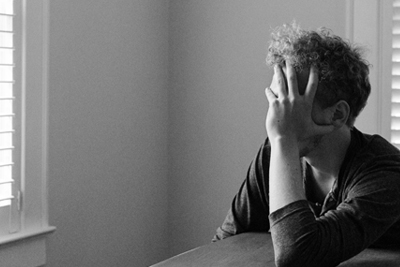Women’s Mental Health and Wellness
Research consistently shows that women suffer from mental illness at a higher rate than do men. This is likely due to a combination of the unique stresses women face, such as the pressure to conform to an unrealistic beauty standard or to be a perfect mother, along with factors such as hormonal shifts.
We work with women of all ages to combat mental illness and manage challenging mental health symptoms. We understand that mental health concerns—whether they be relationship issues or serious depression—rarely derive from a single cause. Instead, we treat the whole woman, looking at the complex interplay of biology, life history, environment, nutrition, and much more. We partner with you to find solutions, both medical and lifestyle-based, that fit into your life and are
Infertility and Pregnancy Loss
Though both men and women often aspire to be parents, women are taught from an early age that motherhood is a special, and perhaps mandatory. For this reason, infertility can directly affect a woman's self-esteem and overall mental health. Moreover, the complex biological changes associated with treating infertility can wreak havoc on a woman's hormones, making an already difficult time even more stressful.
Women who struggle with pregnancy loss are often hesitant to seek help. There is still the stigma associated with miscarriage, and well-meaning loved ones may inadvertently say hurtful statements. Your partner might not feel as connected to the baby like you, and the sudden hormonal shift associated with a pregnancy loss can compound these challenges. We work with women to navigate the pain associated with infertility and pregnancy loss, to talk to their partners about their pain, to regain a sense of identity after pregnancy loss, and to move forward with confidence regardless of the outcome of fertility treatments.
Food and Eating Issues
Eating disorders are a serious mental health condition. The cause of eating disorders is multifactorial with women making up 75% of those diagnosed with eating disorders. Eating disorders include, but are not limited to, anorexia nervosa, bulimia nervosa, binge eating disorder, and other specified eating disorders. We have a comprehensive and skilled eating disorders team that can treat these issues.
Outside of eating disorders, some women have trouble achieving their usual weight post partum or struggle with obesity. For those patients who have underlying risk factors and do not have an active or history of an eating disorder, we can work with you to achieve a healthy weight without the use of diets or "gimmicks."
Trauma and Abuse
Trauma is a common experience among women. As many as one in four women have been raped, while one in three has experienced violence by an intimate. This type of interpersonal trauma can have far-reaching effects on your self-esteem, relationships, and sense of safety. Women who have experienced trauma may develop symptoms of post-traumatic stress disorder (PTSD), or adopt unhealthy coping mechanisms, such as alcohol use or refusing to leave the house.
We work with you to help you understand how your trauma has affected your life and sense of self. We never push you to talk about something you are not ready to address. Instead, we move slowly and deliberately, helping you feel safe to discuss the pain you have faced.
Prenatal and Postpartum Depression
Pregnancy is a life-altering event that spurs a whirlwind of changes in your body—weight gain, unusual medical symptoms such as swelling and high blood pressure, along with a sense that your body is no longer fully your own. It's no wonder that so many women experience depression either during or immediately after pregnancy.
Although not the sole culprit, hormonal shifts play a significant role in pregnancy-related mental health issues. Women are more vulnerable to pregnancy-related mental illness if they feel unsupported, have a history of trauma, struggle with financial issues, experience health problems during or after pregnancy, or do not receive adequate assistance to tend to their own health.
We work with you to tease apart the various causes of your depression. We don't dismiss you as just another case of hormones gone awry. Instead, we'll craft a comprehensive plan to help you get back to being yourself, so you can enjoy motherhood and find a sense of meaning in bonding with your baby.
Transitioning Into Motherhood
There is perhaps no more profound life change than the transition to motherhood. Suddenly you are responsible for caring for a small person. Many women find that the burdens of motherhood fall primarily to them, based on generations of gender norms. Additionally, women without partners may feel completely alone. From navigating breastfeeding to coping with the stress of a screaming infant, while managing the mixed emotions of transitioning back to work - to rediscovering who you are separate from your identity as a parent - we can help you make a smooth transition to motherhood.
Relationship Issues
From an early age, women are taught to prize their relationships. Relationships make us human, enrich our lives, and offer support through the challenges of life. Too often, though, relationships themselves become the source of life's worst challenges. Infidelity, divorce, breakups, abuse, and relationship conflicts can overwhelm even the strongest women, leaving them wondering how to cope.
We will work with you and your partner to get your relationship back on track. Even if your relationship is ending or your partner is unwilling to seek counseling, we can help. Therapy sessions can offer clarity, a renewed sense of hope, and a deeper faith in your ability to resolve the problems in your relationship—or to move onto a more positive relationship.












